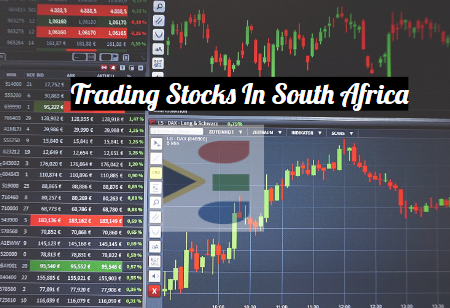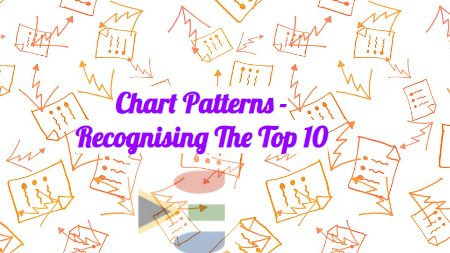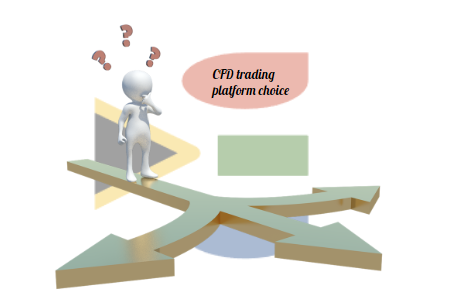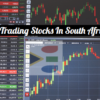CFD trading is becoming an increasingly popular way to trade the financial markets in South Africa, and understanding the basics should be your first step before getting in to this market.
In this CFD trading guide, we will take you through everything you need to know as a CFD beginner, including what CFDs are, how they work and the benefits and risks involved.
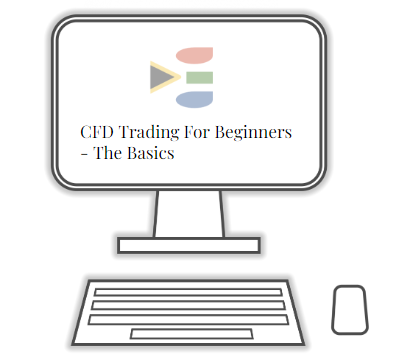
What are CFDs?
A contract for difference (CFD) is a financial contract between two parties, typically referred to as the ‘buyer’ and ‘seller’. The buyer agrees to pay the seller the difference between the current value of an asset and its value at the end of the contract. If the asset’s value increases, the buyer pays the seller; if it decreases, the seller pays the buyer. CFDs are a type of derivative instrument, which means their price is derived from that of another underlying asset.
What are derivatives in CFD trading?
Derivative instruments are those that allow you to speculate on the price movement of underlying assets without actually owning the asset itself. The most common underlying assets that CFDs are traded on include indices, shares, commodities, forex and cryptocurrencies.
CFD trading was originally designed for institutional investors to hedge against future price movements in the underlying asset. However, the advent of online trading platforms has made it possible for retail traders to access this market.
CFDs are traded on margin, meaning you only need to put down a small deposit to open a position. This can make CFD trading an attractive proposition for those with limited capital, as you can control a large position size with a relatively small amount of money.
It is important to remember that leverage in trading is a double-edged sword and can magnify both your profits and losses. You need to know that if you wish to be remotely successful trading CFDs, it is essential to have a sound risk management strategy in place before trading.
How do CFDs work?
When you trade CFDs, you are speculating on the price movement of the underlying asset without actually owning the asset itself. There are two basic ways you can trade CFDs, going long, or short.
CFD trading long/short example
If you think the price of gold is going to rise, you could open a long CFD position by buying gold CFDs. If the price of gold does indeed rise, you will make a profit; if it falls, you will incur a loss.
If you think that the price is going to fall, you can open a short position; which in turn will show you a profit if the price of the asset drops, and a loss if the price proceeds to rise.
It should be noted that CFD trading is a leveraged product, which means you only need to put down a small deposit (known as margin) to open a position. This can magnify both your profits and losses, so it is important to use stop-losses and have a sound risk management strategy in place.
What are some of the benefits of CFD trading?
CFD trading offers a number of advantages over other types of trading, such as traditional shares or index trading. These include:
Leverage – as we mentioned earlier, CFDs are traded on margin, meaning you only need to put down a small deposit to open a position. This can make CFD trading an attractive proposition for those with limited capital, as you can control a large position size with a relatively small amount of money.
Short selling – CFDs allow you to take short positions as well as long positions, meaning you can profit from falling prices as well as rising prices. This is not possible with traditional shares or index investing.
Trading costs – CFD trading typically has low transaction costs, as there are no stamp duty taxes to pay and you only pay the spread (the difference between the buy and sell price).
Accessibility – thanks to online CFD platforms, it is now easier than ever for retail investors to trade this market. You can trade CFDs from the comfort of your own home or on the go with a mobile trading app.
Basic CFD trading risks
CFD trading is a high-risk activity and is not suitable for everyone. You should only trade with money that you can afford to lose, as you can incur heavy losses in a short space of time. Be sure to use stop-losses and have a sound risk management strategy in place before you start trading.
When it comes to trading CFDs, there are a few key risks that you need to be aware of. First and foremost, because CFDs are leveraged products, you can end up losing more money than you initially invested. This is particularly true if the markets move against you.
It is worth noting that there are some CFD regulators who have now put in place policies, whereby CFD brokers or trading platforms are no longer allowed to approve your balance going into a negative.
This is a positive move by the regulators as far as retail trader protections go, and has been rolled out in Europe (ESMA), as well as in Australia (ASIC) in recent years.
Another key risk to be aware of is that CFDs are complex financial products and as such, they may not be suitable for everyone. You need to make sure that you understand how CFDs work before trading them.
We have put together some CFD trading guides, and a trading tips section to help you get a grip of the basics of this type of trading before taking your first steps; and many of the best CFD brokers will also have a comprehensive educational offering to assist.
Finally, it’s also worth noting that some CFD brokers charge commissions and/or fees on trades. These charges can eat into your trading account balance over time, so it’s important to factor them into your calculations when you’re looking at your potential return from your CFD trading.
It is within the rights of any business to be able to generate revenue from the services they provide you, and in the case of CFD brokers, they do this typically with spreads (the difference between bid/ask prices). What you should take care of, is to keep an eye on how wide the spreads are, as the lowest spreads brokers can end up saving you a lot in costs over time.
All in all, while there are some considerable risks to be aware of when trading CFDs, as long as you’re careful and do your research, CFD trading can be a great way to profit from moves in the financial markets.
